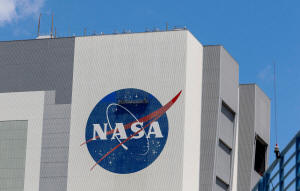|
The
two companies announced plans in January for Airbus to provide
design support for Voyager's Starlab, one of three projects
pre-selected by NASA to draw up plans for a potential commercial
successor to the ISS.
On Wednesday, they said Airbus would become a core partner in a
newly planned venture to develop, build, and operate the orbital
research post, expanding Europe's role in the project.
The size of the shareholdings and financial details were not
disclosed. Voyager Space also declined to discuss funding plans.
Starlab is one of three private concepts designed to replace the
aging ISS, a football field-sized orbital laboratory that has
continuously housed crews for more than 22 years.
The original blueprint for Starlab included an inflatable
habitat designed by Lockheed Martin.
But following a decision to switch to a metallic structure,
Lockheed's role has effectively been superseded by Airbus, which
built the Columbus module for the ISS.
"Lockheed will likely still have a role to play somewhere within
the supply chain," Dylan Taylor, CEO of Voyager Space told
reporters. Lockheed remains an important customer for Voyager
and Starlab will remain U.S.-led, he added.
"There will be contributions coming from Europe, but there will
definitely be an assembly and large contributions coming from
the U.S."
Voyager, through its subsidiary Nanoracks, won $160 million from
NASA in 2021 to support Starlab development under the agency's
Commercial Low Earth Orbit Development programme.
Axiom Space and a team led by Jeff Bezos' Blue Origin are
developing rival stations under the programme.
NASA has planned to retire the ISS in 2030 and rely on private
companies to host its scientific research in low-Earth orbit,
but agency officials have acknowledged it may need to extend the
lifespan as private replacements take shape.
Voyager Space and Airbus have said Starlab would deploy in 2028,
but backed away from a specific timeline on Wednesday.
"It will occur before the ISS decommissioning; we're highly
confident of that. Whether it's going to be late 2027, early
2028, or late 2028 we're still working out those details,"
Taylor said.
The two companies expect to announce a launch provider in coming
months.
(Reporting by Tim Hepher, Joey Roulette. Editing by Jane
Merriman)
[© 2023 Thomson Reuters. All rights
reserved.] Copyright 2022 Reuters. All rights reserved. This material may not be published,
broadcast, rewritten or redistributed.
Thompson Reuters is solely responsible for this content.

|
|




